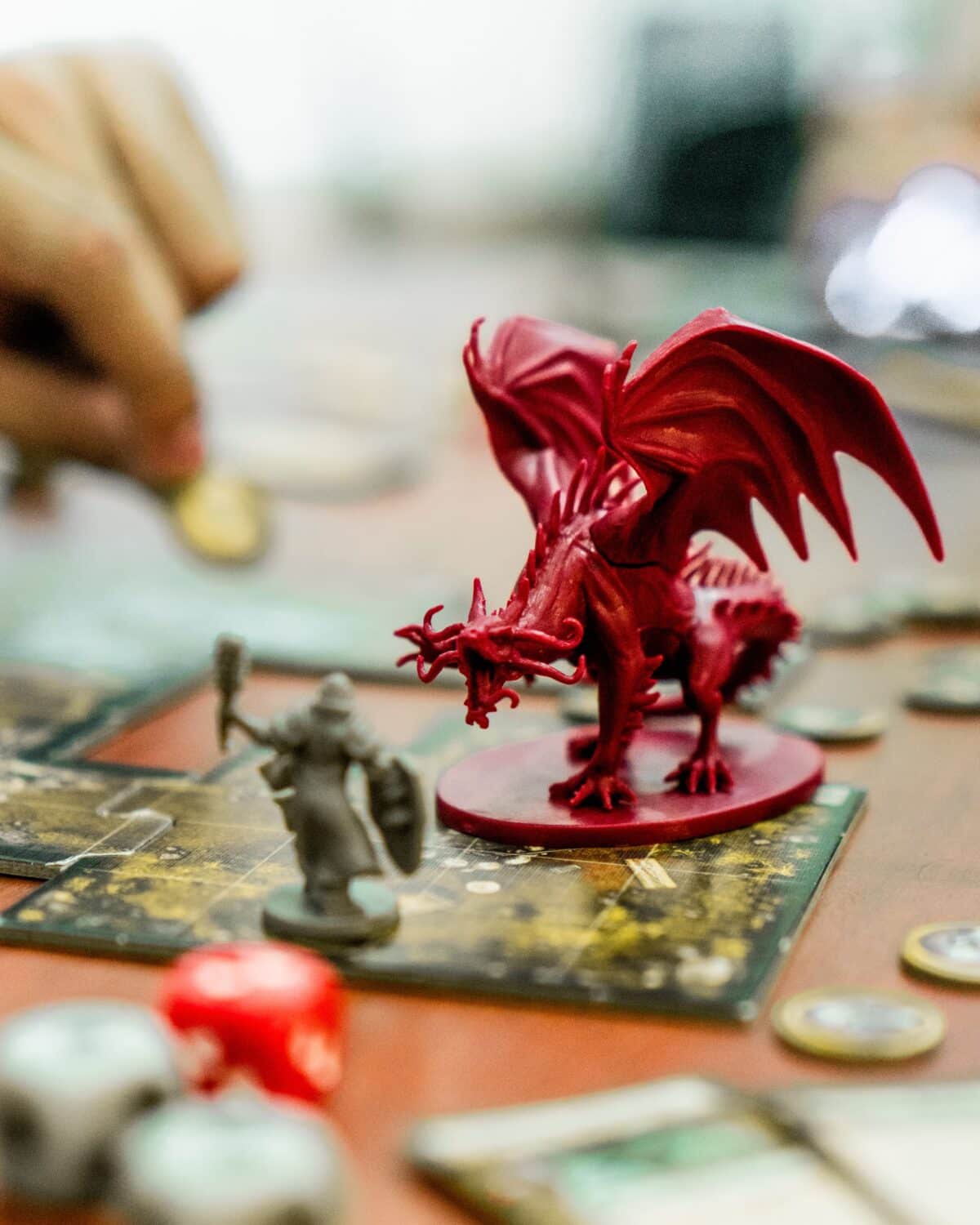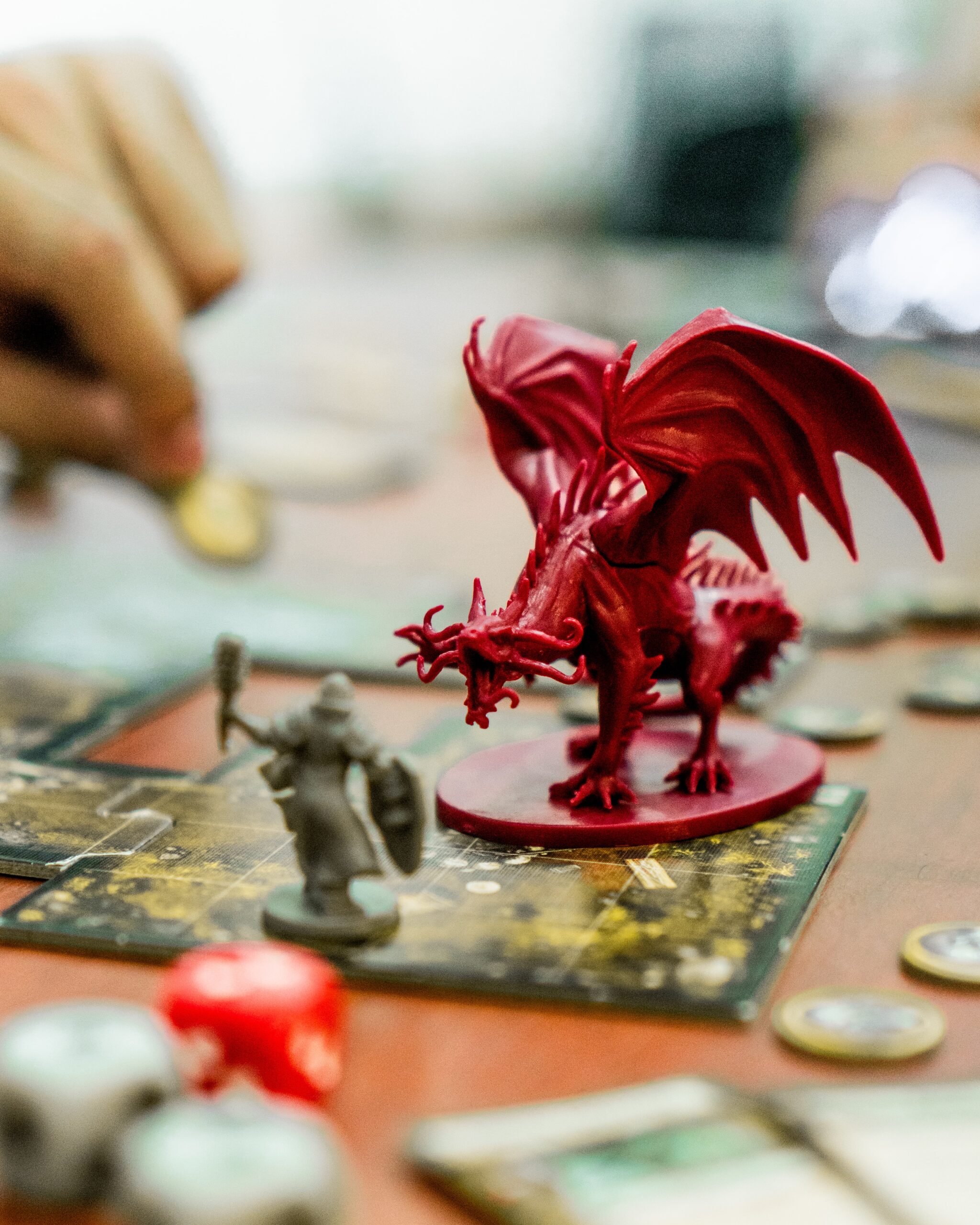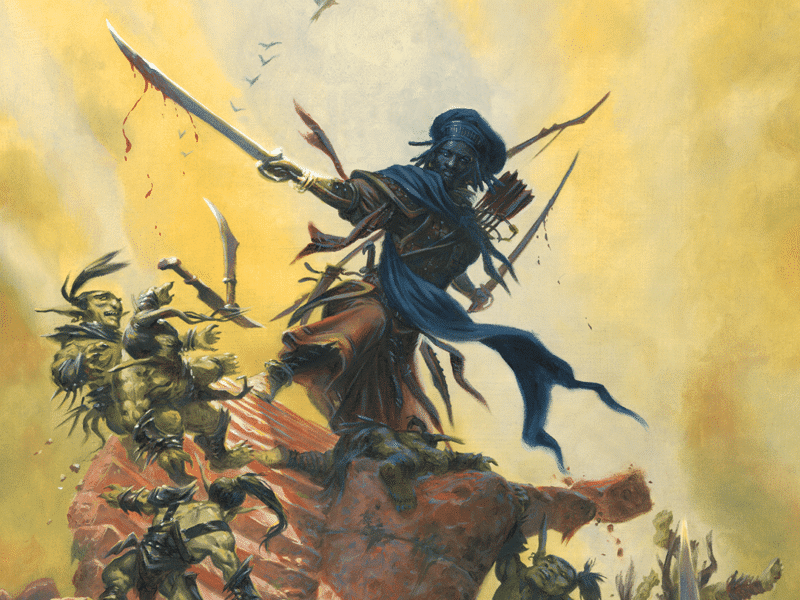Big news and changes await the world of Dungeons & Dragons! A few days ago, Wizards of the Coast – the makers of D&D, often shortened to WotC – offered a preview of their upcoming virtual tabletop platform, an enormously ambitious project that is meant to offer an (almost) brand new way to experience the game. Much of the platform is built around a system called Unreal Engine, a tool that’s known for its popularity among video game developers, and there’s huge emphasis on the visual and tactical aspect of the game – in other words, spectacular combat with dazzling effects.
- Is this why I’m seeing advertisements everywhere?
- So the game as we know it is being overhauled?
- So what’s actually changing?
- Hang on – D&D is all about sitting around a table, right?
- I bet that changed in 2020!
- So all of us will be playing online soon?
- What about the good old sitting-around-a-table part?
- What happens next?
Is this why I’m seeing advertisements everywhere?
Most likely! WotC is currently engaged in a plethora of marketing efforts around D&D, and many announcements seem to be timed with the recent release of the game-based movie. There’s also a sense of frantic damage repair, possibly as the brand took a critical hit earlier this year when some planned (and widely decried) changes to its third-party licencing were leaked to the media. Presently, WotC is doing its best to inspire and tease its audience with the new sneak peek of the virtual platform, which, to the best of my knowledge, is titled simply “D&D VTT”, with VTT standing for Virtual TableTop – but this might well change before it’s made available to the public. The platform has been in the making for some time and is rumoured to be rather pricey, and some sources say that there are hundreds of engineers working on it.
What remains to be seen is if D&D VTT will have the impact on the hobby that WotC aims for and attract hordes of new players to the game. It’s also too soon to tell if it will change how the game is played in general. We have to wait and see, but in the meantime, come along for a dive (or at least a quick swim) in the details and rumours!

So the game as we know it is being overhauled?
Well, not quite. Before exploring what this new online tool will (and won’t) do, it’s prudent to take a closer look at some other changes that are on the horizon for the ruleset itself.
The current edition of D&D is known as the Fifth Edition (also called 5E), simply because it is the fifth edition of the game. Each new edition has been constructed around a core of rules, terms, and lore, with, for example, Armour Class being a mainstay and beholders appearing since the earliest days. However, there have also been huge alterations to the rules and their emphasis over time. Some versions have been geared towards players keen on long and complex battles, while other editions, such as the fifth one, cater more to players who are interested in deep roleplaying and simplified rules.
It would make sense to expect that the next version of the game would be called Sixth Edition – but nay! WotC has decided that instead of releasing a completely new and overhauled version with a corresponding version number, they are opting to call the next iteration “One D&D”. We still have to learn if this means that the editions as we know them will come to a permanent end, but it’s certainly a novel direction for the brand. There have been lots of speculations that the decision heralds other large changes, and it seems this is indeed the case.
So what’s actually changing?
That’s anyone’s guess at this point! But a few facts have been made public, such as the interesting decision to keep One D&D completely backwards compatible. In other words, the upcoming not-quite-new edition will be usable with all your existing modules for 5e. This approach is surprising, but it’s possible that it became an absolute necessity in the wake of the PR disaster following the leaked proposed Open Gaming Licence in the beginning of the year.
The point about backwards combability was welcomed by many in the hobby. It means that all the books that one has purchased for D&D will stay relevant, and it’s a critical aspect for third-party creators of content for D&D such as ourselves as it means we and other independent publishers can continue to make, share and sell material for D&D.
In addition, WotC is asking for feedback on ideas for future changes to an unprecedented extent. Playtest versions are being published on D&D Beyond, and people are being to encouraged to get back to WotC with their comments and suggestions so that the rules can be fine-tuned or thrown out the window. That’s right – a rule that receives lots of negative responses might be totally discarded, and this has already happened.
What’s more, it is now widely known that this not-so-new version of the game will be accompanied by an extremely sophisticated online platform, which is planned to enable virtual D&D games complete with 3D dungeons, special effects, and highly detailed environments.
Hang on – D&D is all about sitting around a table, right?
Well, that certainly used to be the case – but as all players know, the rise of the internet has prompted many to form globe-spanning groups and play with people separated by huge distances (and, frequently, several time zones).
The reason why some turn to online play are many. One major factor is that many live in isolated areas or small towns in which there are few other players around. For these players, the dawn of the internet was a deity-sent blessing as it enabled them to roll dice and battle dragons with other people in the same situation. Another typical prompt to go virtual is that lots of groups, especially those who go on to play for many years, find that some of their members move cities or even countries for a variety of reasons, such as work, studies, love, or family. For these players, online play offers a way to keep the adventuring party intact and seek out new quests. Consequently, people have been playing online for quite some time using the tools that have been available, typically regular video meeting software such as Skype or Zoom.
As time has passed, a variety of new platforms custom-made for tabletop games have arrived on the scene. Examples of these include Roll20, Foundry VTT, Shard, Fantasy Grounds, and there are many others. These tools have enabled long-lasting groups (and friendships) to form between players from countries all over the globe. Still, a lot of players continue to think of D&D as primarily a game for people present in a single room, using paper-based character sheets and rolling physical dice. There are plenty of online streams featuring groups playing their campaigns, such as Critical Role and High Rollers, that have risen to great fame over the past years, but these have also showed people gathered around one table.
I bet that changed in 2020!
You could say that again. When the world was crippled by the pandemic, D&D players everywhere suddenly found themselves unable to meet up in person even if they were neighbours. However, the online groups were able to continue their campaigns as usual! So many who never before had used a computer for playing pen-and-paper roleplaying games quickly took to the internet to keep their characters adventuring. The platforms that already existed explored in popularity, and D&D streams went from showing people present in one room to a collage of framed faces and screen-shared battle maps. In the span of just a few weeks, an entire hobby had become transformed – or at least how it was played.
Unsurprisingly, WotC quickly took notice. Up until this point, they had lacked a VTT platform, and the widely used online tool D&D Beyond, which one can turn to for looking up and discussing rules, was licenced from WotC but not owned by them. The corporation swiftly snapped up D&D Beyond and set out to create its own VTT platform, although it wasn’t until 2022 that the project was officially announced. Now, however, WotC appears to have shifted into its highest gear, and there’s a steady stream of news about their ambitions with the tool.
In the most recent D&D Direct, a show that offers insights into what’s to come for Dungeons & Dragons, some interesting previews were shared. Basically, D&D VTT will provide players and DMs with a 3D-based setting, or more accurately a scene, in which battles and other events can take place. It will be based on the core rules, and open to homemade adventures and encounters too. Those who use D&D Beyond will be able to transfer their characters right into D&D VTT. There’ll be means for social interaction, and everything will happen in real time. The planned but tentative release of D&D VTT is scheduled to happen this summer.
So all of us will be playing online soon?
I’m now entering the precarious dimension of wild speculation, but here are this author’s thoughts on the matter. There will most definitely be plenty of interest in the platform, especially considering the colossal marketing around it, the current popularity of D&D, and also because the high-budget film (much to the surprise of almost the entire hobby) turned out to be rather entertaining.
That said, the platform is facing tough competition. Its biggest rivals won’t be the existing VTT platform as these are far less advanced. On the contrary: because D&D VTT, at least in terms of its dazzling visuals, appears to be very similar to a video game, it might well be that it will compete for people’s attention against games such as Divinity: Original Sin, not to mention the upcoming new version of Baldur’s Gate. Also, while current VTT platforms require little computational power to run, with some even being wholly browser-based, D&D VTT looks likely to demand a lot more from its users’ devices.
What about the good old sitting-around-a-table part?
Precisely! D&D VTT appears to be extremely virtual, and I suspect that many players are attracted to D&D because it isn’t a video game. In these days of online-everything, and with video games that generally have astoundingly good graphics, D&D offers a refuge in that lots of the action – be it combat or conversations – take place solely in the imagination. Even a sophisticated map populated by marvellously painted miniatures will still engage people’s flights of fantasy as they fill in blanks with their ideas of what happens.
And that’s just talking about combat. Depending on your group and the adventure that’s being played, lots – perhaps even the majority – of the roleplaying is exactly about that: playing a role. During a single quest, the characters may attempt to talk sense into an erratic wizard, convince a bouncer to admit them to a nice inn, deceive a suspicious criminal mastermind, charm an aloof bard, or perform a masterpiece in front of a crowd. None of these scenarios requires – or benefits – from a richly detailed 3D view. Some, including me, would even argue that it would only diminish the experience. One’s inner eye is always high-definition and never disconnects (barring lack of sleep or coffee).
What happens next?
My impression is that D&D VTT is a gamble. It may be that WotC feels they can’t not make a VTT platform, seeing as they are the makers of the core game itself, but there are many other routes for promoting D&D, such as launching outreach activities or supporting gaming clubs. Only the future will reveal if WotC’s bet on online roleplaying, or rather virtual battles, will be a success or not. Either way, the good news is that it looks like 5e is here to stay, so players will be able choose their preferred mode of playing. Here at Midnight Tower, we’re obviously keeping a close eye on developments, so you can expect more articles on this subject before long!







